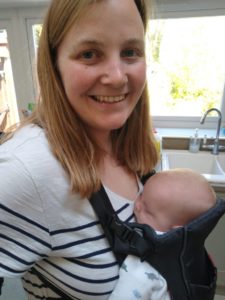Over the last few months while we’ve been social distancing, some of us have been self-isolating, and many of us have been and will continue to experience social connectivity in a different way.
Prior to the Covid-19 crisis, we started looking at statistics around loneliness and social isolation. Over the past six months we’ve been speaking with producers and users of statistics on loneliness and social connectivity to inform a systemic review. We met with statisticians and policy colleagues working on loneliness and we’ve spoken to charities, non-governmental organisations and academics interested in this area. We’ve had some really interesting conversations on the public need for these types of data, and we’ve taken on board a wide range of views.
We’ve been planning a review of loneliness and social connectivity statistics for some time, but we could not have predicted how the COVID-19 pandemic has influenced all our daily lives, and how enforced social distancing would lead us all to consider loneliness and social connectivity in terms of our own experiences.
Now more than ever, it is important that statistics and data on social connectivity and loneliness reflect the world we live in, and that this data is accessible to those who need it to provide services and support. We all need to be able to understand who is most likely to be affected by loneliness, and how social connectivity influences our lives.
It’s important that statistics provide an aggregated picture – amassing all the personal stories into a wider perspective. At their best, statistics illuminate our lives and help us understand the lives of others. But sometimes they can fail at this – they can appear impersonal, reducing the mass of experience into single arid numbers. Behind all the numbers lie human stories.
So, to mark Loneliness Awareness week, we decided that instead of talking about the big national numbers, we’d share about our own personal experiences of loneliness, connection and hope in lockdown.
 Louisa – Statistics Regulator currently on Maternity Leave:
Louisa – Statistics Regulator currently on Maternity Leave:
I knew that starting maternity leave and becoming a Mum had the potential to be a lonely time, but of course, I could never have guessed this is how it would turn out. We were lucky; our son was born six weeks before lockdown, and so to begin with, many of our friends and family were able to visit. However, once lockdown started, and the visits stopped, I did start to feel lonely. As lockdown has eased, I have really appreciated increased social contact, but it seems unlikely many of the activities I had planned are likely to start up again soon. For now, even at a distance, my son enjoys having people to watch, and I am thankful that at his age the lack of wider social contact is unlikely to affect him. I think, however, understanding the impact of loneliness on new Mums, as well as the impact of limited social connectivity for older babies and toddlers, will be important.
Mark – Head of Newport Office
I’m from a generation where working from home just wasn’t a ‘thing’ so have always preferred working in the office. I find it gives order and structure to my day – and during the first few days of lockdown, it was that structure that I really missed, and had to find a way to replicate at home. I’ve found it’s important to be proactive in establishing a way to maintain an order to my day. I’m an intermittently avid cyclist so disciplining myself to get out on the bike first thing in the morning gives me that routine and gets my head clear ready for the day ahead. I’ve never been so grateful for the great spring weather we enjoyed. I’ve made a conscious effort to try to keep social interaction up during lockdown – phoning colleagues for a chat to see how they’re doing. I think it’s really important to keep talking.
 Zayn – Statistics Regulator
Zayn – Statistics Regulator
Reflecting on the last 13 weeks – it feels like so much has happened, and at the same time, it feels like nothing has happened at all. May was the month I was most looking forward to in 2020 – it was my 21st birthday and I was invited to the film festival in Cannes. Neither of these really went how I would’ve liked them to, but I look forward to visiting Cannes in the future and turning 21 again next year (that’s how it works, right?). I guess my one wish would be to go back to the office before my placement ends, it wouldn’t feel right leaving without the chance to say a proper goodbye.
 Liddy – Statistics Regulator
Liddy – Statistics Regulator
I’ve adapted to working from home and connecting with friends virtually, and I know this experience is very familiar to some, but very different to many others. For example, three years ago my granddad passed away which left my grandma on her own. She has a really strong support network that she would normally meet almost daily. During the pandemic she has struggled with loneliness. It has been really tough, but she’s adapted by learning how to use Zoom, distracting herself with gardening, and now she’s able to, going on socially distanced walks with her friends again.
Gemma – Statistics Regulator
Before lockdown I used to rely a lot on family for childcare as I was office-based five days a week, so losing that support quite literally overnight was hard to get used to. But they’ve still helped hugely by always being at the other end of the phone. My sons have been able to stay in contact with their friends through chatting on their games consoles, and they’ve also had some lovely phone calls from their school teachers checking that they’re ok. For me, accepting that they aren’t baking, doing arts and crafts or PE with Joe Wicks (sorry Joe!), as well as a good playlist and a cupboard full of snacks has been what’s kept us all sane!
Gail – Head of Edinburgh Office:
“Mum, I am cripplingly lonely” – a hard thing for any fourteen year old boy to admit to his mum. Social connectiveness, something my teen boys took for granted, has all but disappeared. Children across the UK, kids just like my boys, are living through an extended period of unplanned and unexpected severe isolation. Most of them will bounce back from this, as I hope mine will. Not all children will though, and it is likely that many will need support to address emotional and practical needs both in the short and longer term. We need to support this generation of children and good data can do that. Data that is up to date and accurately reflects the prevalence and type of need, not only at the level where support is needed, but which is consistent and can be joined with other data to give the bigger picture.
We’re also carrying out a related but separate systemic review on Mental Health statistics in England, the results of which will be published shortly.
If you’re feeling lonely and would like some advice or support, you can visit the Campaign to End Loneliness, who have recently published a blog with some guidance on how to deal with loneliness at the moment. If you’re feeling anxious or worried about Coronavirus, the charity Mind offer guidance and support on their website. Stay up to date with the latest health guidance on the NHS website.


